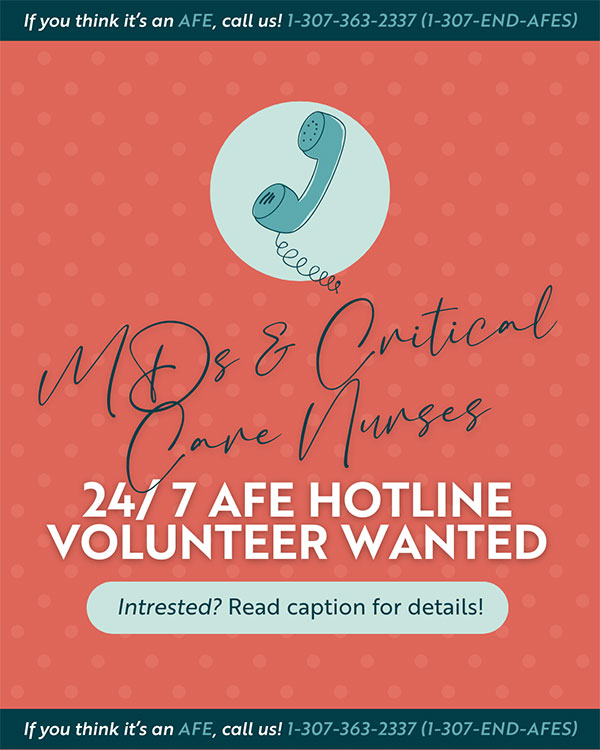At the AFE Foundation, we are always inspired by the commitment of hospitals and healthcare teams who take extraordinary steps to prepare for the unexpected. One shining example comes from UPMC Northwest, where clinical teams recently came together for a series of simulations designed to strengthen their readiness to respond to Amniotic Fluid Embolism (AFE).
Comprehensive Training Before Simulation
Before stepping into the simulation room, all OB nurses and OB physicians at UPMC Northwest completed the “AFE: A Comprehensive Approach” course. This ensured every participant entered with a strong foundation of knowledge, empowering them to apply their training in real-time crisis scenarios.
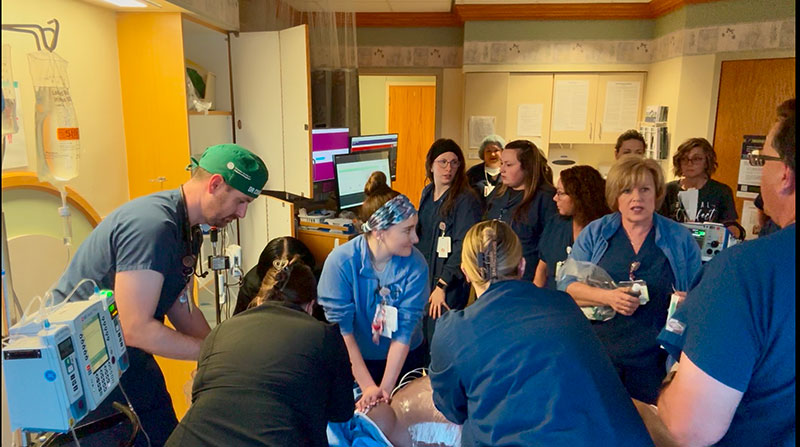
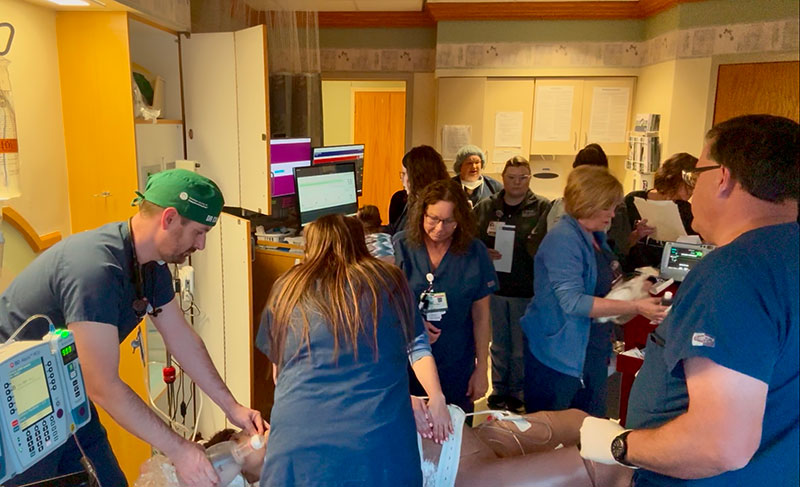
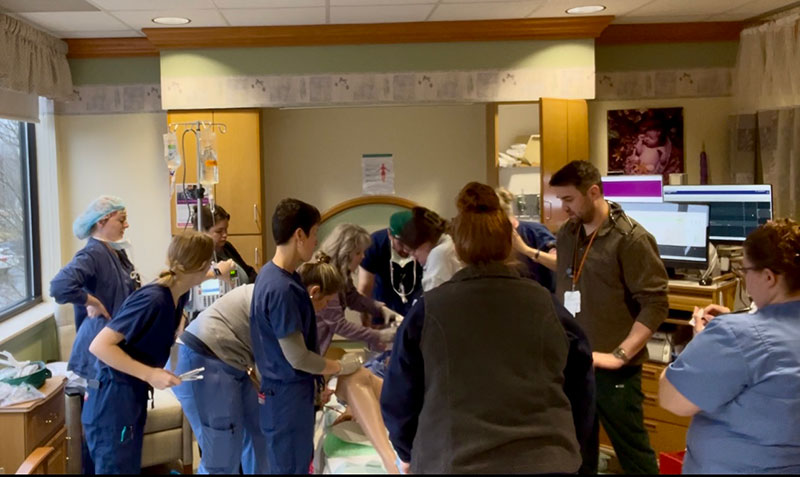
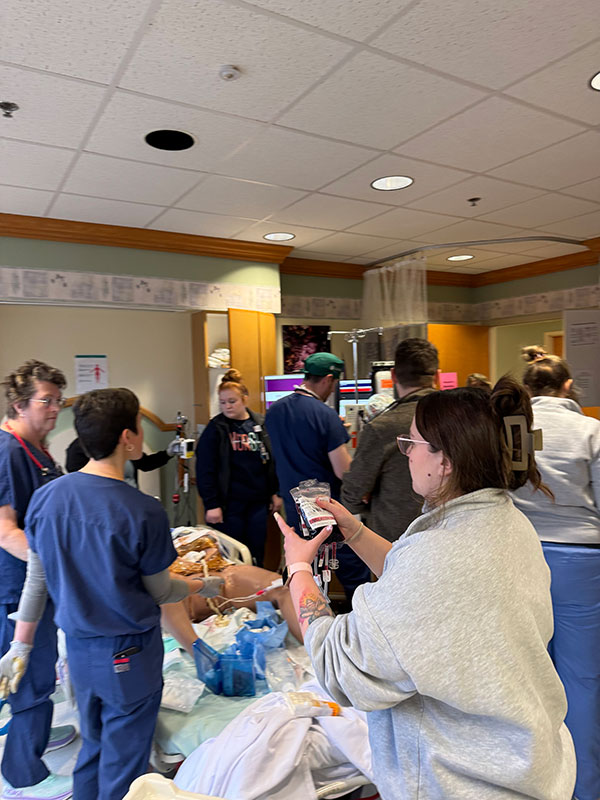
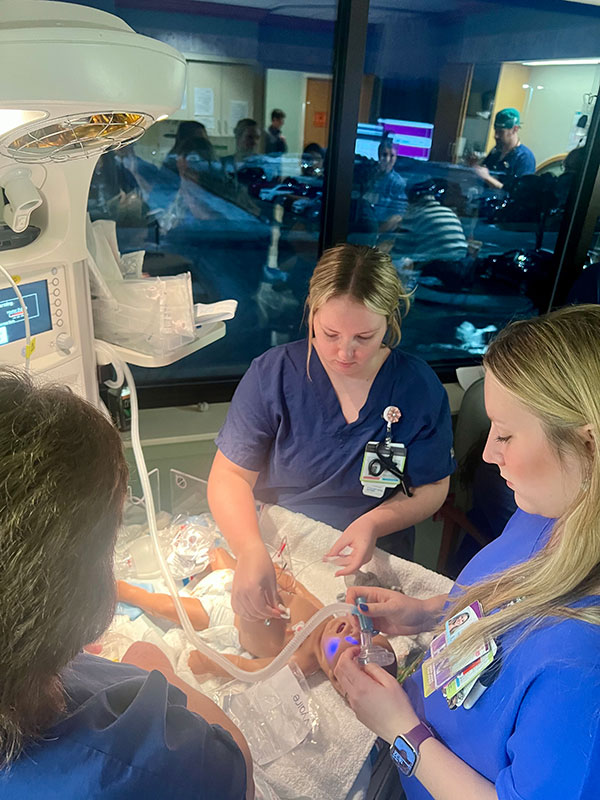
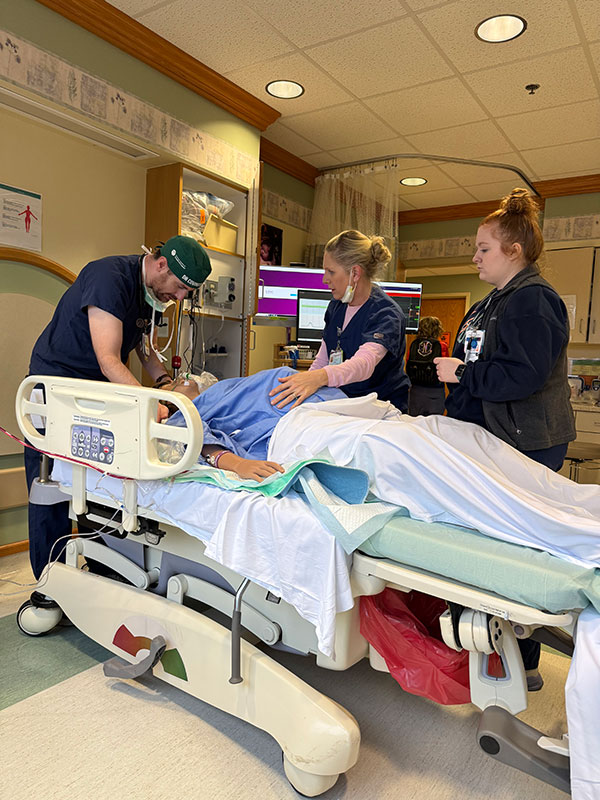
Full-Scale Multidisciplinary Simulations
The team then conducted two comprehensive simulation events, following the guidelines outlined in our AFE Simulation Toolkit. These sessions included:
- Implementing the AFE checklist at the bedside
- Performing a bedside resuscitative cesarean section
- Achieving return of spontaneous circulation (ROSC) to simulate activating the massive transfusion protocol
- Completing a neonatal resuscitation simulation
These highly coordinated drills brought together more than 60 healthcare providers across multiple specialties, including obstetrics, respiratory therapy, laboratory and blood bank teams, patient care technicians, emergency medicine, critical care, and anesthesia (MD and CRNA).
Community-Wide Impact
This collaborative effort was not only a remarkable opportunity for learning but also gained recognition in the local community. The initiative was featured in the local newspaper, which highlighted both the event and the work of the AFE Foundation.
Lasting Changes in Practice
UPMC Northwest has taken lasting steps beyond the simulations:
- The AFE checklist is now implemented on crash carts
- Laboratory materials are included in their hemorrhage cart for rapid access
Gratitude and Commitment
Randilyn Lewis, DNP, RN, Clinical Education Specialist at UPMC Northwest, shared:
“We promise to continue to prepare for the unexpected so that we may save lives in our community.”
A Model for Others to Follow
UPMC Northwest has demonstrated what is possible when preparation, education, and teamwork unite. Their efforts serve as a model for other institutions across the country to embrace simulation, adopt the AFE checklist, and build multidisciplinary readiness.
We celebrate their leadership and encourage other hospitals to follow in their footsteps—because when it comes to AFE, preparedness saves lives.

